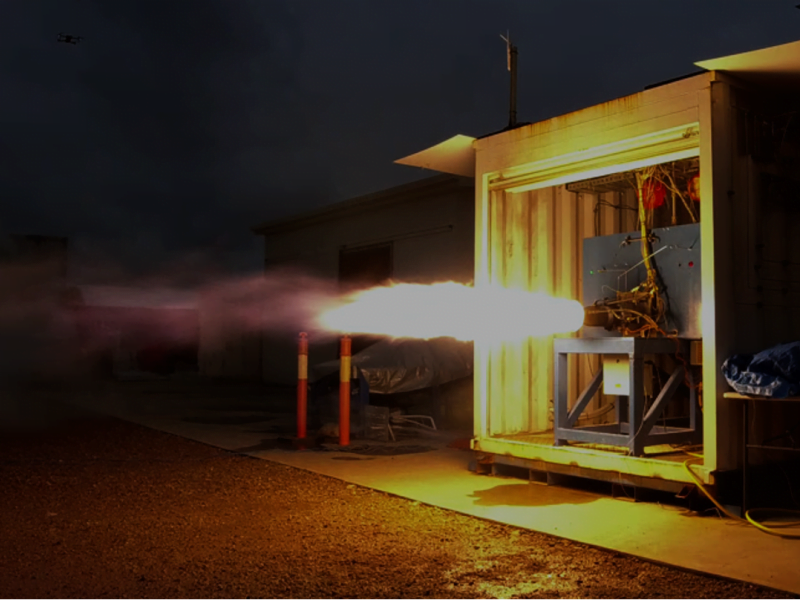Gilmour Space Technologies is one step closer to blast off after successfully completing tests on its brand new, 3D-printed Phoenix rocket engine.
At the company’s test site in Toowoomba in Southeast Queensland, the Phoenix completed a mission duration test lasting 190 seconds. A Gilmour Space spokesperson said this was the first of a number of qualification tests, but that the engine was close to being operationally ready.
Powered by liquid oxygen and kerosene, the 3D printed engine will power the final stage of Gilmour’s three stage Eris rocket. Phoenix produces more than a tonne of thrust and is regeneratively-cooled, meaning the liquid propellant is passed through channels near the nozzle to cool the engine. Test footage can be viewed here.
The firm is still waiting to receive final approval from state and federal government agencies for their Bowen Orbital Spaceport at Abbot Point in North Queensland, as well as a launch permit from the Australian Space Agency. The firm aims to launch its first rocket at the site in October this year.

Liquid rocket engines are difficult and expensive to develop but are used by most rocket companies. Gilmour Space chief executive Adam Gilmour said that the completion of this test was significant for the company and for Australian space capability more broadly.
“With this key test, we’re proud to say that Gilmour Space has demonstrated sovereign capability in not one but two rocket systems,” said Mr Gilmour.
“The team has done exceptionally well to design, build, and test this new engine in just over a year while also scaling our main hybrid rocket engine, building out the rest of the vehicle, and pushing to develop a new orbital launch site in Australia.
“Our goal has always been to provide an affordable and reliable option for accessing space, and we believe this unique engine combination will allow us to achieve that for our customers.”
The successful Phoenix test follows the successful test of Gilmour’s large hybrid rocket in January. Sirius, which is still undergoing qualification tests, will support the first and second stage of the space firm’s Eris rocket.
Eris is capable of launching payloads of up to 305kg to low-earth orbit. Gilmour’s first flight later this year will carry a 35kg spacecraft from Sydney-based Space Machines Company.
This year, Gilmour has been the beneficiary of several federal government funding announcements. At the end of February, the firm shared in $32 million from the government for the development of its Abbot Point launch site.
Then in March, the Australian Space Manufacturing Network, led by Gilmour, received $52 million to support the launch site as well as construction of an advanced manufacturing facility and a test hub.
Do you know more? Contact James Riley via Email.

